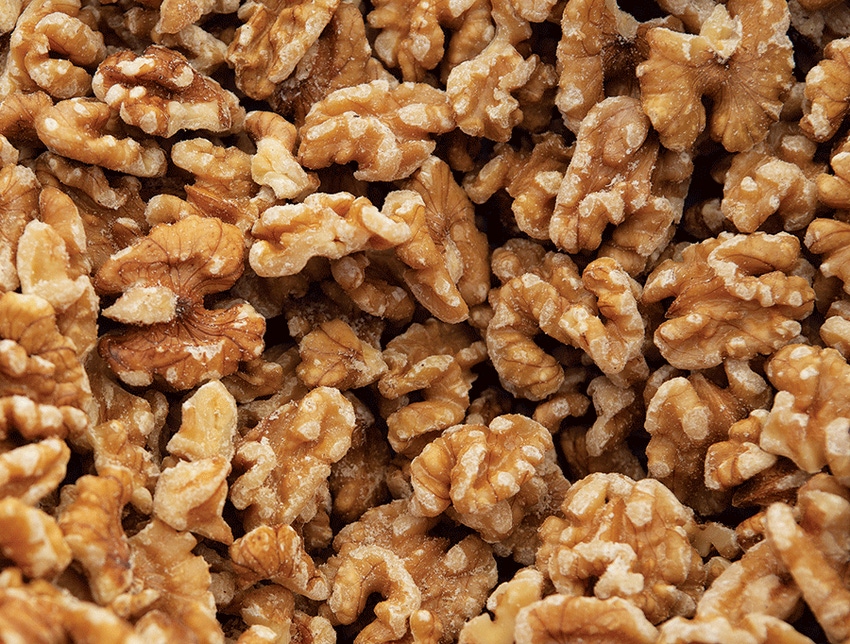
In its continuing push to boost domestic demand for walnuts by touting their health benefits, the California Walnut Commission is now pointing to updated research related to heart health.
A recent systematic review from the Harvard T.H. Chan School of Public Health examined 25 years of evidence on the role of walnut consumption on cardiovascular risk factors, including cholesterol, triglycerides, blood pressure, and weight, according to a Walnut Commission news release.
Findings from the meta-analysis suggest that including walnuts in a person’s diet may significantly reduce his or her total cholesterol, LDL cholesterol, triglycerides, and apolipoprotein B, compared to control diets.
SPREADING THE WORD
California walnut industry representatives will be armed with this latest research as they attend the Food and Nutrition Conference and Expo Oct. 20-23 in Washington, D.C., and the Weight Management Dietetic Practice Group Networking Reception at Obesity Week in Nashville, Tenn., Nov. 13.
The emphasis on cardiovascular benefits follows the Walnut Commission’s campaign this summer to publicize numerous studies that link consumption of the nuts to improved gut health.
The health research is a big part of the walnut industry’s mission to improve domestic demand, as acreage and production keep expanding, and as international trade gets murkier. California’s walnut acreage ballooned to 400,000 acres in 2017, a 10 percent increase from 2015, the National Agricultural Statistics Service estimates.
EFFORT TO BOOST SALES
In recent years, international markets accounted for about 65 percent of the walnut industry’s business, but as competition overseas intensified and walnut prices dropped, the California Walnut Board has invested more effort to boost U.S. sales.
The industry has placed a big emphasis on heart health since the American Heart Association certified walnuts as heart-healthy in 2011, meaning retailers could display the organization’s heart-check mark label near supplies of the nut.
Research in the past decade has also linked walnut consumption to slowing breast cancer, improving cognitive ability, controlling calories, and boosting male fertility.
RESEARCH UPDATED
Harvard’s original meta-analysis of heart health research was published in 2009 and reviewed 13 trials representing 365 participants. However, the updated review reflects twice the number of trials and represents about three times the number of individuals, the Walnut Commission’s release explains.
Researchers examined 26 randomized, controlled trials representing 1,059 participants who were from 22 to 75 years old, including those with a variety of conditions such as high cholesterol, type 2 diabetes, metabolic syndrome, overweight or obesity, as well as those who were healthier.
The amounts of walnuts consumed by the subjects varied, ranging from 5 percent to 24 percent of total calories per day (equivalent to 0.5 to 3.9 ounces per day), and their results were compared to those with control diets that included low-fat, Mediterranean, or traditional American or Japanese food.
When compared to control diets, a diet supplemented with walnuts resulted in a significantly greater decrease in total cholesterol (3.25 percent), LDL cholesterol (3.73 percent), triglycerides (5.52 percent), and apolipoprotein B (4.19 percent), while having no adverse effect on body weight or blood pressure, researchers found.
For a full explanation of the study, visit https://bit.ly/2OUd63d
About the Author(s)
You May Also Like






